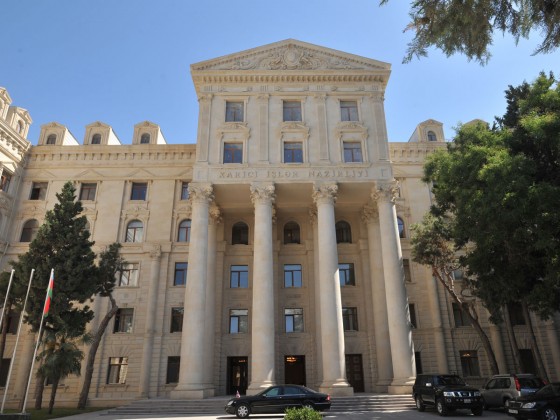
Armenia is in self-isolation and deep political, economic and demographic crisis, Hikmat Hajiyev, the Azerbaijani foreign ministry’s spokesman, told Trend March 22.
Hajiyev was commenting on Armenian Deputy Foreign Minister Shavarsh Kocharyan’s another remark against Azerbaijan.
Hajiyev said that the policy being conducted by the Armenian military-political leadership is contrary to logic and far from civilized behavior and ethics.
"These actions, based on the thought of a field commander and military dictatorship, pose a threat to the entire region,” he said. “Today Armenia is in self-isolation and deep political, economic and demographic crisis due to the militaristic policy of Yerevan’s military dictatorship."
Hajiyev said that Armenia’s intensive violation of the ceasefire along the line of contact and on the Azerbaijani-Armenian border and other provocative actions once again testify to the essence of Yerevan’s regime.
“In this regards, Armenian officials’ statements on ceasefire, regional cooperation and conflict settlement cause laughter and disgust,” Hajiyev said.
The conflict between the two South Caucasus countries began in 1988 when Armenia made territorial claims against Azerbaijan. As a result of the ensuing war, in 1992 Armenian armed forces occupied 20 percent of Azerbaijan, including the Nagorno-Karabakh region and seven surrounding districts.
The two countries signed a ceasefire agreement in 1994. The co-chairs of the OSCE Minsk Group, Russia, France and the US are currently holding peace negotiations. Armenia has not yet implemented the UN Security Council’s four resolutions on withdrawal of its armed forces from the Nagorno-Karabakh and the surrounding districts.
Trend
